Error message
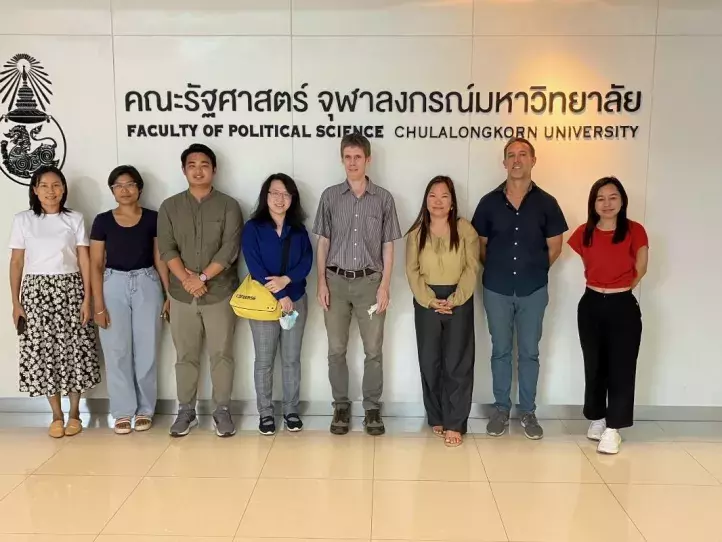
OFFICE/DEPARTMENT
Team Myanmar, from right to left: Orapan Pratomlek: Researcher and staff, Chulalongkorn University’s CSDS, Kevin Woods: Fellow, East-West Center, Naw Pee The Lon: Ph.D. student, CSDS, Carl Middleton: Assistant Prof. and director, CSDS, Ei Yin Yin Phyu: Master’s student, CSDS, Andrew Wai Phyo Kyaw: Ph.D. student, CSDS, Thiri: Researcher and staff, CSDS, Khin Saw Htay: independent researcher, Bangkok, not pictured: Su Myat Thwe: Master’s student, CSDS
The Political Ecology of Mobility and Vulnerability from Myanmar to Bangkok
Objectives
In this research, we will study the linkages between migration and changing notions of vulnerability related to climate change and agrarian transformation using a political ecology approach. We aim to understand the opportunities and challenges faced by Burmese individuals and their families in Burmese migrant communities living in Bangkok, including their relationship with Thai communities. We also seek to understand the circumstances for their migration from Myanmar, including how economic struggles and debt, conflict and the coup, agrarian transformation and climate change influenced decisions to migrate. We will also study how connections are maintained and its implications for vulnerability or resilience, including flows of remittances and other resources, between Bangkok and home communities in Myanmar.
We also aim to build educational capacity with Chulalongkorn University graduate students, mainly but not only from Thailand and Myanmar, on the topic of migration and climate change as well as on research methods that we are employing in this project. The latter part of the project seeks to build possible collaborative projects with Burmese migrant communities who want to communicate their messages to broader policy audiences, such as through mixed media. We also plan to work with other Thai migrant NGO networks and Thai policy makers to influence NGO strategic planning and national policy in Thailand on environmental parameters related to Burmese migration.
Scope of Activities Completed as of September 2023
Initial scoping and interviews with groups of migrants and organizations working with them in Bangkok has been conducted between December 2022 and August 2023. In-depth interviews have been conducted with many of the leading NGO migrant networks operating in Bangkok. We also conducted initial interviews with Burmese restaurant workers in Pratumwan area, garment workers in Bang Bon sub-district, Burmese construction workers via their leader and engineer at a site nearby to the university, gardeners and cleaners at the university, and a leader of a network of domestic workers in the Bangkok vicinity. We have also conducted a few key informant interviews with professors, PhD students, and advocates working with Burmese migrant communities in Bangkok, Chiangmai and Mae Sot. We have hired two part-time Burmese research assistants to help with translation, note taking, and coordinating along with CSDS staff members.
Starting in mid-September, we began conducting focus group discussions with four different migrant communities in Bangkok. The migrant communities are as follows: (1) factory workers in Bang Bon sub-district; (2) migrant workers who are studying Thai language; (3) gardeners and cleaners at Chulalongkorn University; and (4) congregation members at a Baptist church. The set of three discussions with each of these communities are as follows: (1) your experiences living and working in Bangkok; (2) circumstances in your native place in Myanmar and reasons for leaving; and (3) future aspirations and plans to achieve your goals.
We prepared guiding questions for each of the focus group discussions to help facilitate discussions. After our introduction to the overall project and the topic of the focus group discussion, we also review the ethical guidelines for the project to gain their consent. This includes ensuring everyone is kept anonymous, not recording the sessions or taking any pictures of participants, and their freedom to withdraw from the project at any time for whatever reason.
Several Burmese and Thai MAIDS master’s students at Chulalongkorn’s Political Science Department are joined by Burmese and Thai CSDS staff members in these discussions with migrant communities. Discussions are conducted in Burmese language, with simultaneous translation into English. Notes are compiled in Burmese language and later translated into English.
We plan to finish these focus group discussions in the next 1-2 months.
If possible, we would also like to conduct ethnographic research on their labor conditions in Bangkok to understand their new urban-based vulnerabilities, and conduct phone interviews with the parents of those interviewed in Bangkok to better understand the agrarian change context of their native home and the reasons their child migrated.
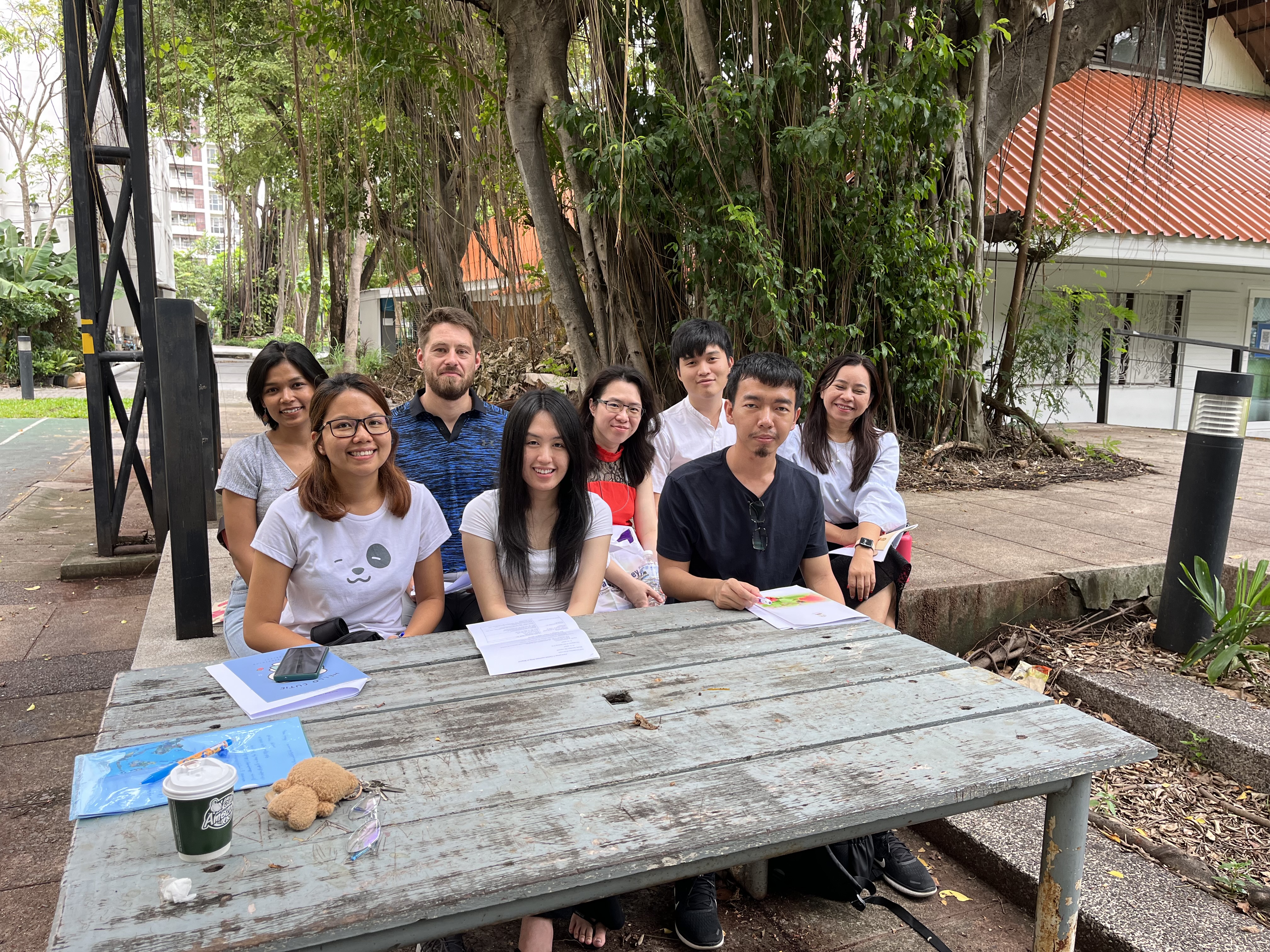
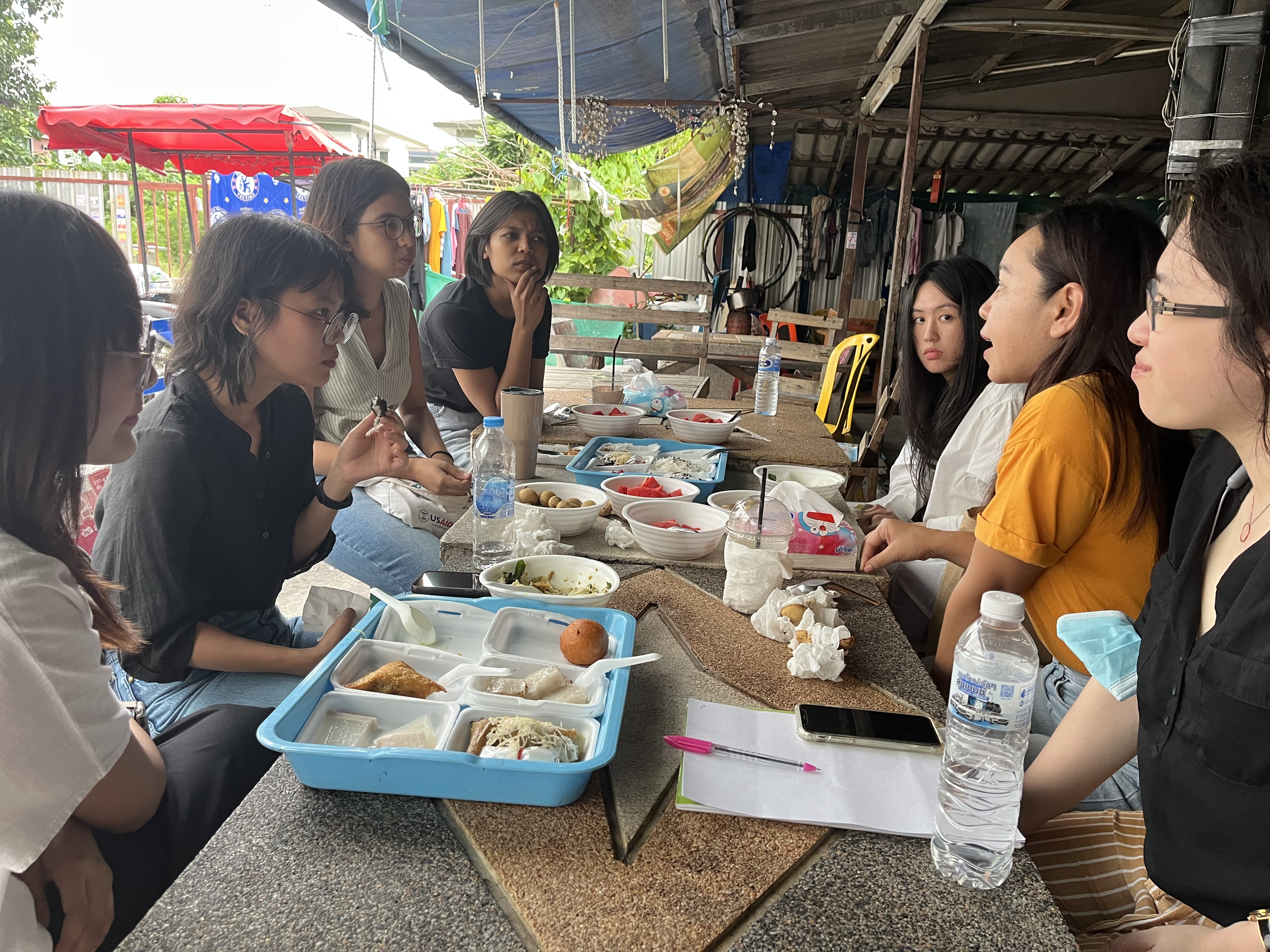
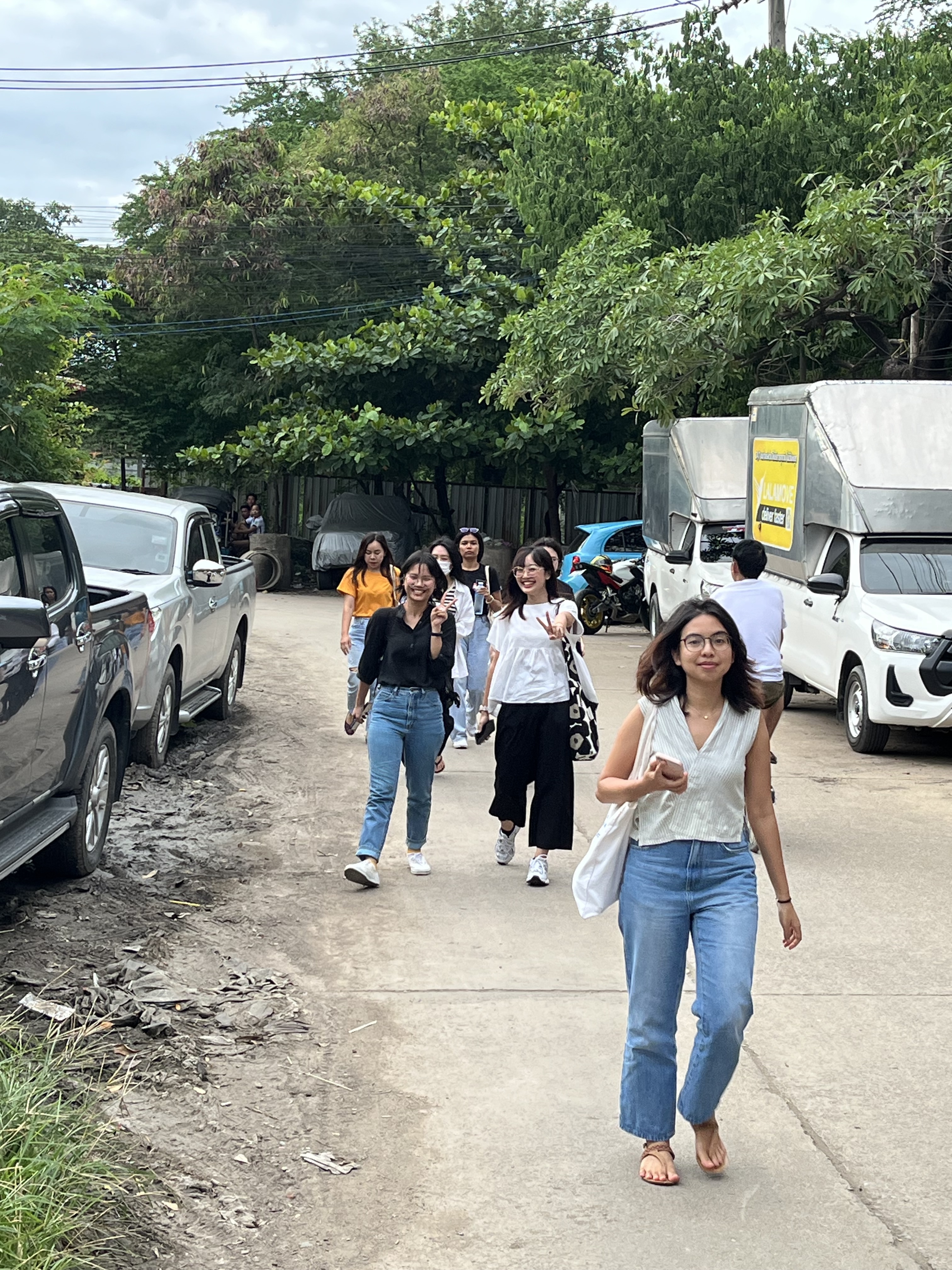
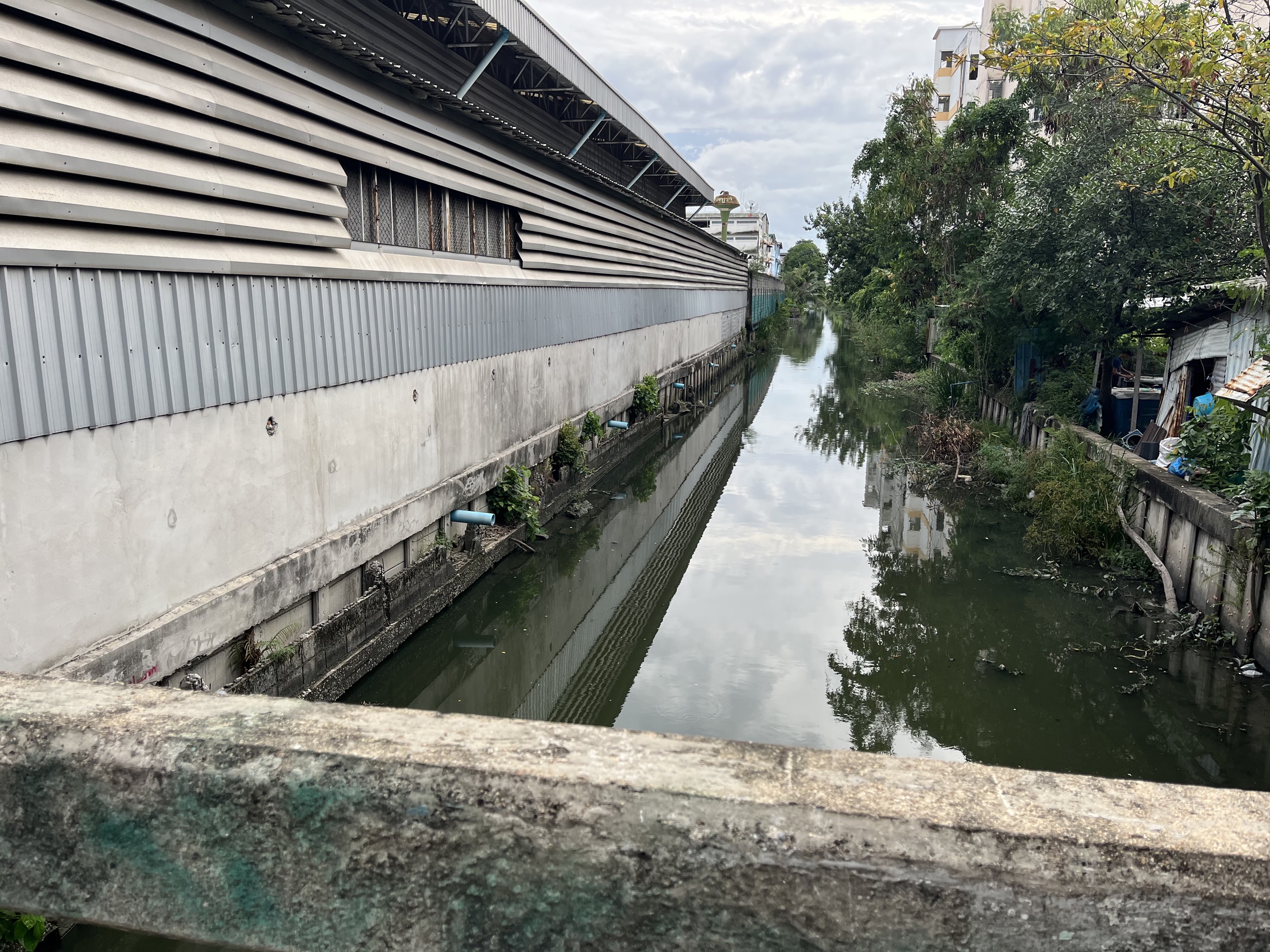
Team Myanmar, from right to left: Orapan Pratomlek: Researcher and staff, Chulalongkorn University’s CSDS, Kevin Woods: Fellow, East-West Center, Naw Pee The Lon: Ph.D. student, CSDS, Carl Middleton: Assistant Prof. and director, CSDS, Ei Yin Yin Phyu: Master’s student, CSDS, Andrew Wai Phyo Kyaw: Ph.D. student, CSDS, Thiri: Researcher and staff, CSDS, Khin Saw Htay: independent researcher, Bangkok, not pictured: Su Myat Thwe: Master’s student, CSDS
The Political Ecology of Mobility and Vulnerability from Myanmar to Bangkok
Objectives
In this research, we will study the linkages between migration and changing notions of vulnerability related to climate change and agrarian transformation using a political ecology approach. We aim to understand the opportunities and challenges faced by Burmese individuals and their families in Burmese migrant communities living in Bangkok, including their relationship with Thai communities. We also seek to understand the circumstances for their migration from Myanmar, including how economic struggles and debt, conflict and the coup, agrarian transformation and climate change influenced decisions to migrate. We will also study how connections are maintained and its implications for vulnerability or resilience, including flows of remittances and other resources, between Bangkok and home communities in Myanmar.
We also aim to build educational capacity with Chulalongkorn University graduate students, mainly but not only from Thailand and Myanmar, on the topic of migration and climate change as well as on research methods that we are employing in this project. The latter part of the project seeks to build possible collaborative projects with Burmese migrant communities who want to communicate their messages to broader policy audiences, such as through mixed media. We also plan to work with other Thai migrant NGO networks and Thai policy makers to influence NGO strategic planning and national policy in Thailand on environmental parameters related to Burmese migration.
Scope of Activities Completed as of September 2023
Initial scoping and interviews with groups of migrants and organizations working with them in Bangkok has been conducted between December 2022 and August 2023. In-depth interviews have been conducted with many of the leading NGO migrant networks operating in Bangkok. We also conducted initial interviews with Burmese restaurant workers in Pratumwan area, garment workers in Bang Bon sub-district, Burmese construction workers via their leader and engineer at a site nearby to the university, gardeners and cleaners at the university, and a leader of a network of domestic workers in the Bangkok vicinity. We have also conducted a few key informant interviews with professors, PhD students, and advocates working with Burmese migrant communities in Bangkok, Chiangmai and Mae Sot. We have hired two part-time Burmese research assistants to help with translation, note taking, and coordinating along with CSDS staff members.
Starting in mid-September, we began conducting focus group discussions with four different migrant communities in Bangkok. The migrant communities are as follows: (1) factory workers in Bang Bon sub-district; (2) migrant workers who are studying Thai language; (3) gardeners and cleaners at Chulalongkorn University; and (4) congregation members at a Baptist church. The set of three discussions with each of these communities are as follows: (1) your experiences living and working in Bangkok; (2) circumstances in your native place in Myanmar and reasons for leaving; and (3) future aspirations and plans to achieve your goals.
We prepared guiding questions for each of the focus group discussions to help facilitate discussions. After our introduction to the overall project and the topic of the focus group discussion, we also review the ethical guidelines for the project to gain their consent. This includes ensuring everyone is kept anonymous, not recording the sessions or taking any pictures of participants, and their freedom to withdraw from the project at any time for whatever reason.
Several Burmese and Thai MAIDS master’s students at Chulalongkorn’s Political Science Department are joined by Burmese and Thai CSDS staff members in these discussions with migrant communities. Discussions are conducted in Burmese language, with simultaneous translation into English. Notes are compiled in Burmese language and later translated into English.
We plan to finish these focus group discussions in the next 1-2 months.
If possible, we would also like to conduct ethnographic research on their labor conditions in Bangkok to understand their new urban-based vulnerabilities, and conduct phone interviews with the parents of those interviewed in Bangkok to better understand the agrarian change context of their native home and the reasons their child migrated.





